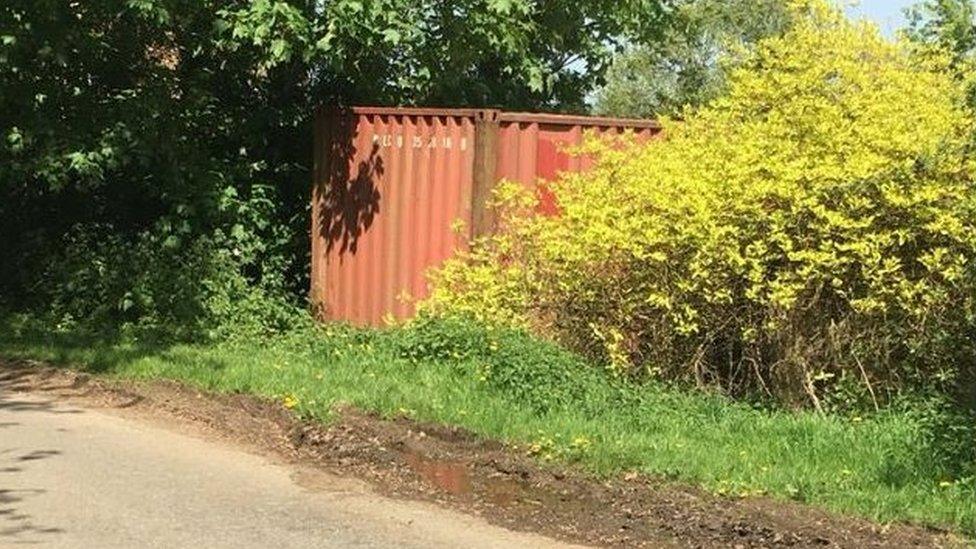Bulky waste charges for fridges and furniture 'confusing'
- Published
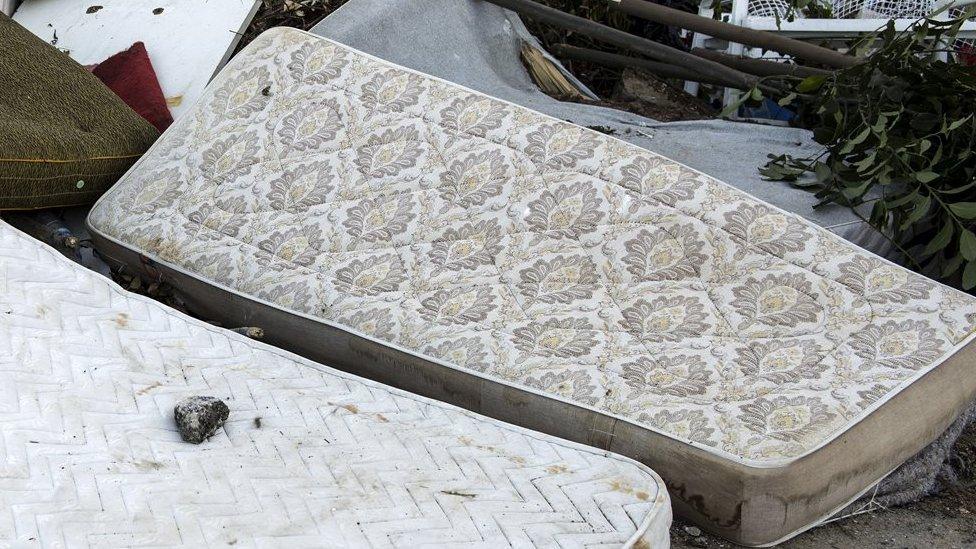
Consumers face a postcode lottery when it comes to charges to take away their unwanted furniture and other large items of waste.
In some parts of the UK, the service provided by local authorities is free, while in other areas the cost can rise to more than £40 for a single item.
An environmental waste expert said the system was "in no doubt confusing".
Local councils say cuts to their budgets mean they have no choice but to increase fees.
The BBC's Shared Data Unit gathered and analysed figures from 391 councils across England, Wales, Scotland and Northern Ireland. It found:
Prices across the UK range from just a few pounds for a single item to £44. For multiple items, charges go up to £100 in some areas
Householders in the south of England have to pay on average three times as much as those in the North East, the cheapest region for bulky waste
A quarter of councils in England have extra charges to collect white goods
Only a third of councils in England offer reductions for pensioners, disabled residents or people on benefits
Only 15 councils in England currently provide free bulky waste collections, while half of local authorities in Northern Ireland do not charge
'Something must give'
Prof Ian Williams, Professor of Applied Environmental Science at the University of Southampton, said budget cuts had left many councils with no choice but to charge.
"I don't think there is any doubt that the system is confusing, but the problem is that local authorities will have different infrastructures, service provision and levels of affluence," he said.
"Local authorities are under unbelievable pressure financially. Something has to give, and what can give is that they provide a less good or more infrequent service or end up having to charge for certain services."
Prof Williams said the makeup of an area was an important factor in charge rates.
He said: "In a relatively affluent area, you are likely to have a lower density population - bigger properties with gardens - and hence fewer occupants per square mile. Therefore a council could be swamped by requests for bulky waste collection in one place and have an easier time of it in another."
Average price of item at first collection:
England £11
Wales £6
Scotland £6
Northern Ireland £2

Do charges lead to fly-tipping?
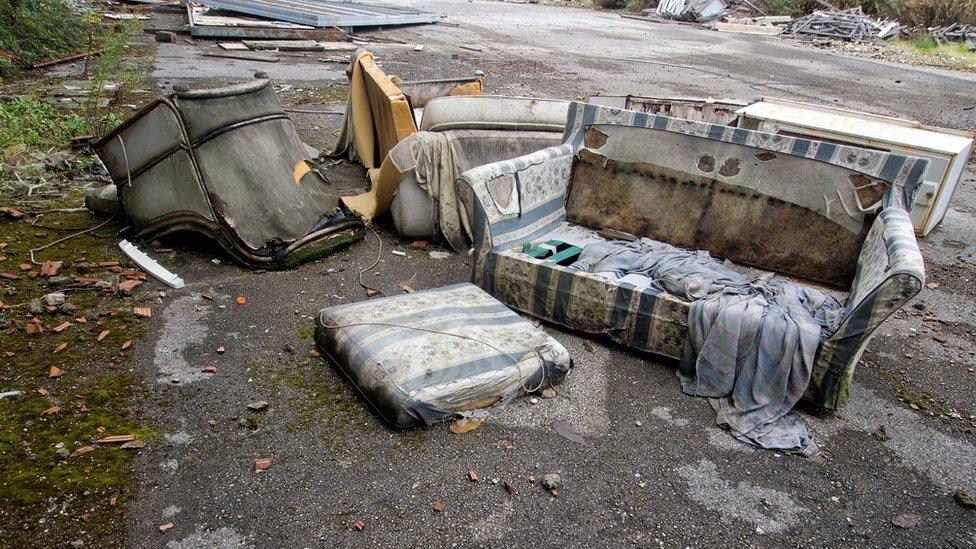
The BBC's analysis found no connection between the areas with the highest charges for waste collection and the highest rates of fly-tipping.
However, more than half of the almost one million fly-tipping incidents in England in 2017-18 - 521,895 in total - involved white goods and large household items such as furniture.
A senior councillor in London acknowledged it took "commitment and time" for people to "do the right thing" and book a waste collection online, while fly-tippers just dumped waste illegally.
Councillor Stuart Collins, Croydon's environment spokesman, said: "The type of people who are using the collections are the good people doing the right thing.
"They would not dream of fly-tipping."
Croydon Council used to charge residents £10 to remove up to seven bulky items but reintroduced free collections last year. However, seven months in, the council has not recorded a decrease in fly-tipping.
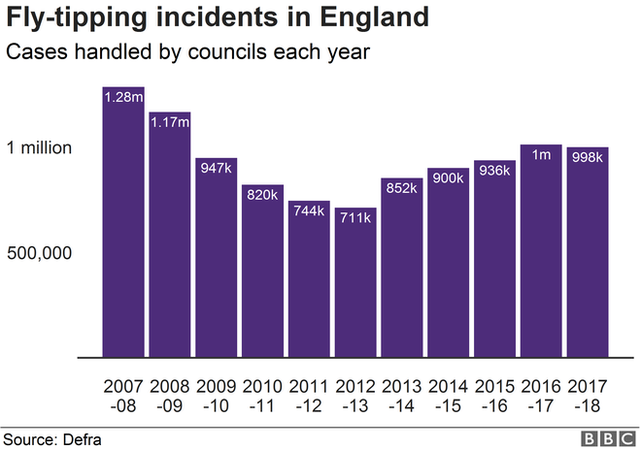

Analysis by Roger Harrabin, BBC Environment Correspondent
An economist would predict that raising the disposal fee would tempt some people to dump illegally, but the research shows no clear link between the fee and the amount of waste that actually gets dumped.
It's clear, then, that other factors are fuelling the current epidemic of dumping.
One is the difficulty of knowing who to trust to get rid of your waste. The websites for the authorities in England, external, Scotland, external and Wales, external are rather confusing on this issue, and that leaves space for cowboy operators to tout for waste - then fly-tip it.
In Greater Manchester, researchers reported that of the 34 adverts for rubbish removal services in local papers, only four could be verified as licensed. Basic research on similar ads on Facebook and Gumtree found the majority of those were also unverifiable.
The researchers have set up their own website Dsposal, external to help people figure out who to trust.

The government says local authorities can charge "what they see fit" for bulky waste collections.
A Department for the Environment Food and Rural Affairs spokesman said: "It is up to local authorities to set their priorities for the collection of waste and recycling on a local level - based on the needs of their local communities and within the national waste policy."
A new government waste strategy was launched in December which includes consulting on plans for manufacturers to foot the cost of disposing of the goods they produce.
The Local Government Association (LGA) said: "Some councils were able to provide free garden and bulky waste services when they were first introduced but are now having to charge to reflect the growing cost of providing a collection service."
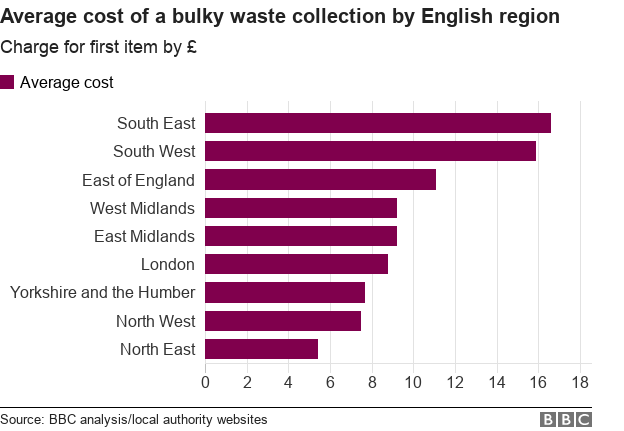
Free for the past 20 years
Bulky Bob is a familiar name in Liverpool, one of the handful of council areas in England where bulky waste collections are free.
Bulky Bob's was created in 2000 by FRC Group, a social enterprise and charity that aims to end furniture poverty. It has held the contract for the city's bulky household waste collection service for the last 20 years.
Bulky Bob's makes 50,000 collections in Liverpool every year and last year picked up 70,000 mattresses.
Shaun Doran, the chief executive of the FRC Group, said: "The service remains free in Liverpool and it has always been free.
"It is a great service for residents. They are paying their council tax and they believe this is something they should be getting."

What the councils say
Waverley Borough Council, which charges £44 to pick up a single item, defended its prices and said they ensured collections were not subsidised by council tax payers who do not use the service. The council said charges covered its costs and it encouraged residents to reuse or recycle items.
Mole Valley District Council said disposing of waste in a responsible way could not "be done cheaply". It said the cost to the householder reflected the "quality and efficiency of our services" - and it encouraged residents to contact charities to collect items for reuse.
Richmond upon Thames council said the £51 charge for collecting a fridge is "to cover the costs associated with collections as per the guidance in national legislation."
Fareham Borough Council said it provided an "efficient and comprehensive" bulky waste service, which it does not make any profit from. It said the borough did not have a problem with fly tipping, suggesting residents are happy with the prices.

More about this story
The Shared Data Unit makes data journalism available to news organisations across the media industry, as part of a partnership between the BBC and the News Media Association.
For more information on methodology, click here, external. For the full dataset, click here, external. Read more about the Local News Partnerships here.
- Published15 November 2018
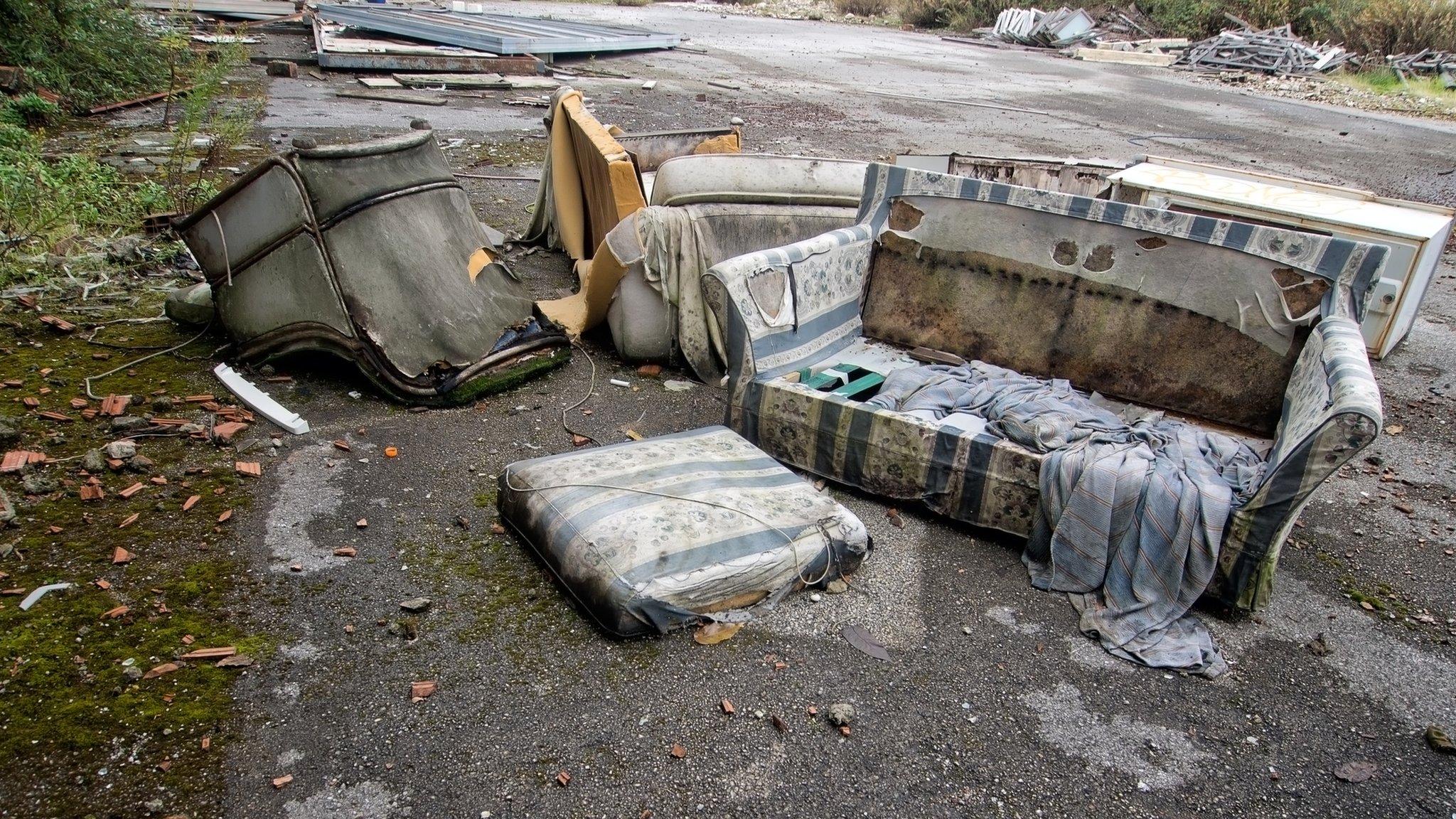
- Published16 November 2018
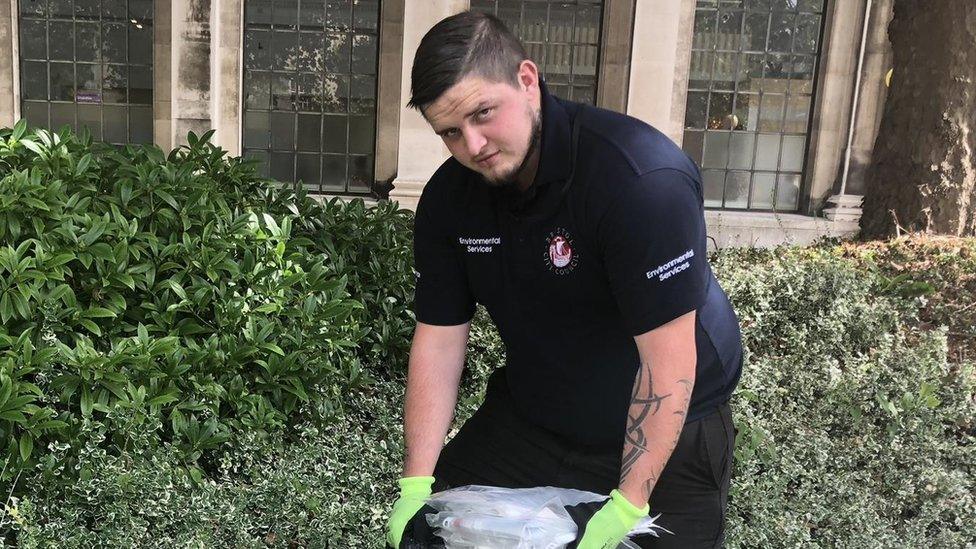
- Published14 May 2018
